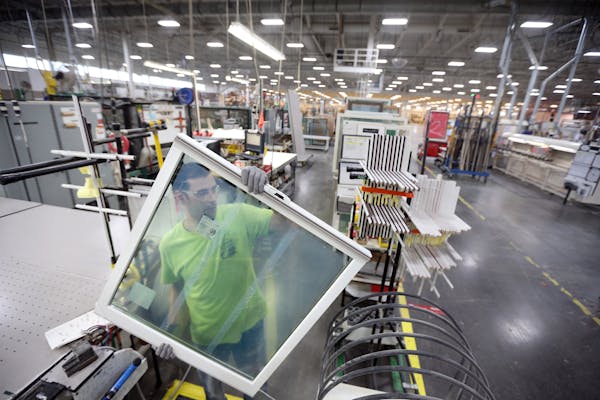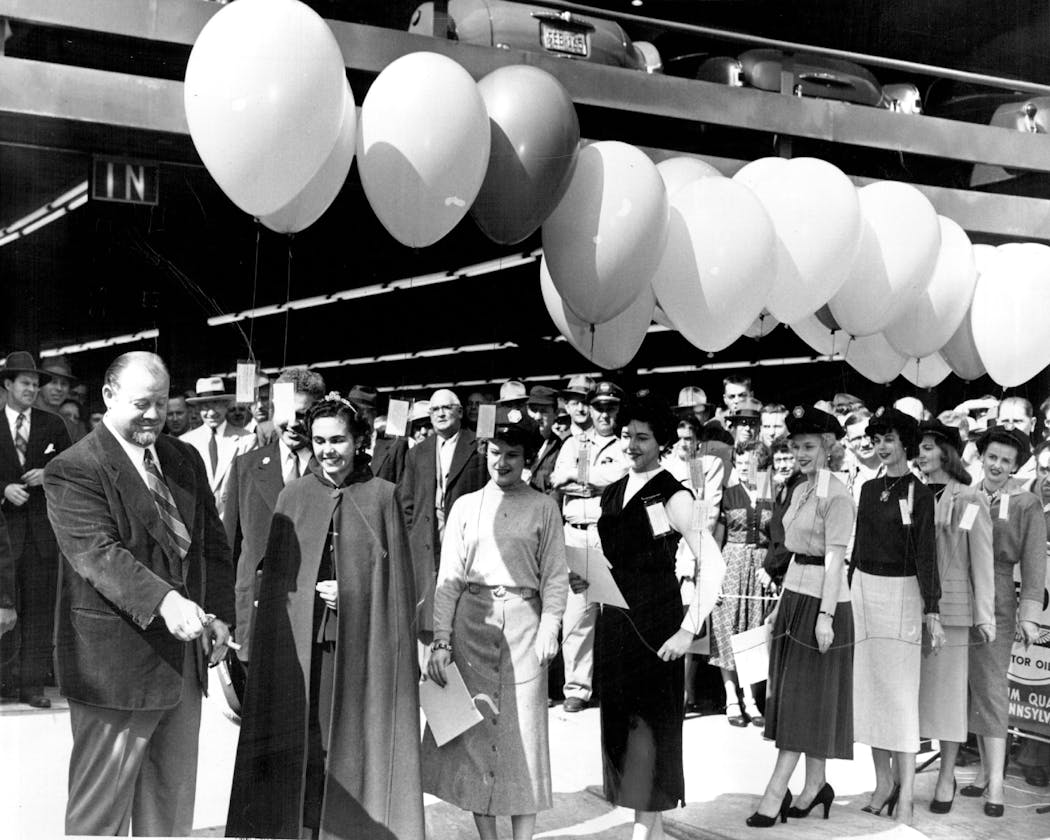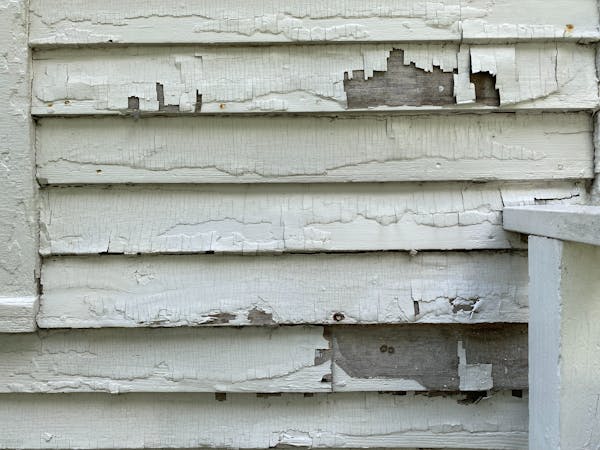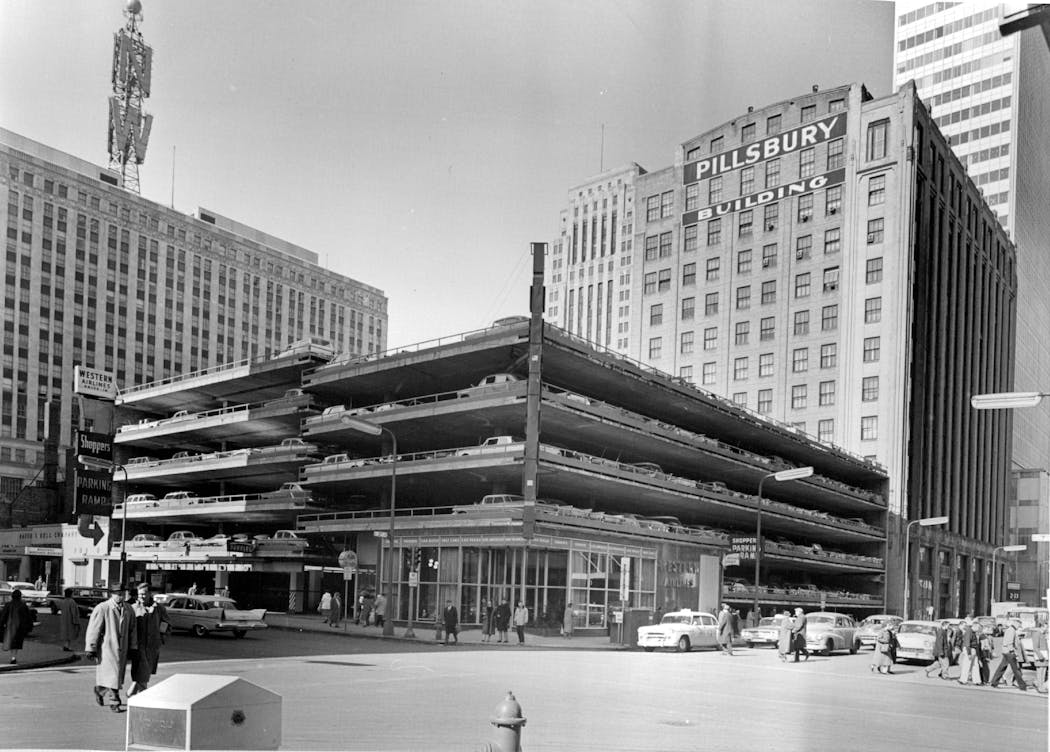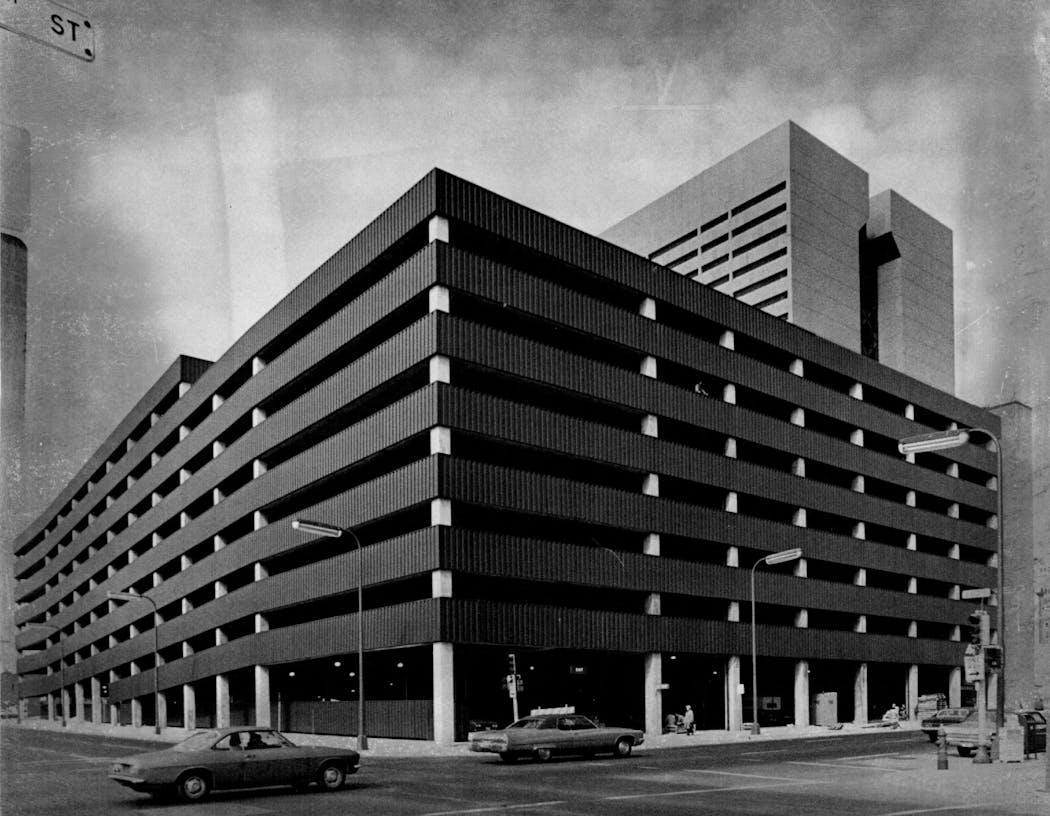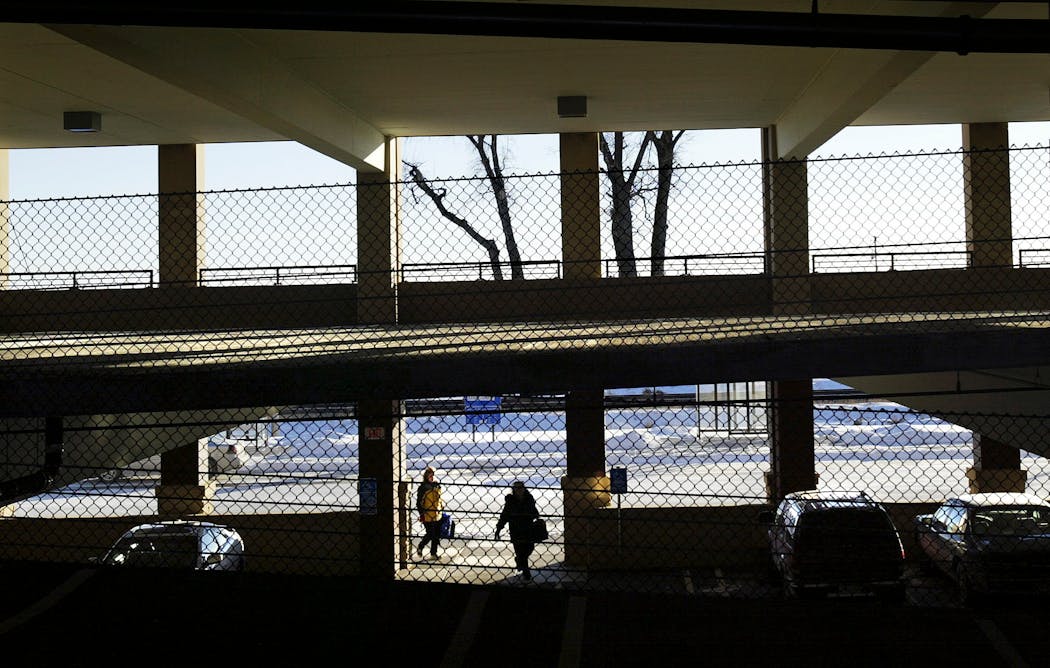Why do Minnesotans call them 'parking ramps' instead of 'garages'?
Listen and subscribe to our podcast: Via Apple Podcasts | Spotify | Stitcher
The Minnesota lexicon includes some well-known phrases that are unique to this area, like "hot dish," "uff da" and "Duck, Duck, Gray Duck." But another regionalism is so ingrained in the local vocabulary that it is rarely discussed: "parking ramp."
Most of the country calls these multi-story car storage facilities "parking garages."
"Why do they call parking garages 'ramps' in Minnesota?" an anonymous reader asked Curious Minnesota, the Star Tribune's community-driven reporting project. "Don't the locals realize ramps are components of parking garages?"
"Ramp" is indeed unusually popular around these parts, said Tim Drew, Minneapolis' parking systems manager. When he attends industry conventions, "I call ours 'garages' because I don't want to answer the question, 'What's a ramp?'"
Google Trends, which tracks searches of specific terms, ranks Minnesota first in the nation for "parking ramp" searches. It was followed by Iowa and Wisconsin. Parking "garage" is more evenly distributed across the country, but Minnesota ranks 46th.
The massive Newspapers.com collection of newspaper archives (including this one) help tell a more granular tale about the historical use of "parking ramp."
The term has been mentioned the most in Wisconsin newspapers, followed by Iowa and Minnesota. Those results are not precise, however, since the site has much larger archives from Wisconsin and Iowa than Minnesota.
In Minnesota newspapers, "parking ramp" has been used nearly twice as many times as "parking garage," according to the site.
In Minnesota, "parking ramp" first appeared in a 1930 Minneapolis Star story about developing a parking area underneath an auto show building at the State Fairgrounds. But the term "garage" dominated until the 1950s, when "ramp" became the more common terminology. This was around the same time that Minneapolis business leaders began investing in new standalone parking structures in the downtown area.
Over time, United States newspapers have made 1.5 million mentions of "parking garage" — about eight times as many as "parking ramp," according to Newspapers.com.
Why do Minnesotans say 'ramp'?
OK, regionalism established. But the curious reader wants to know why Minnesotans use the term more often. That's a tougher question.
"The origin of regionalisms is sometimes obvious, and sometimes almost impossible to pin down," said Anatoly Liberman, a University of Minnesota linguist and etymologist.
Parking experts floated a few theories.
The earliest parking facilities, most in dense Northeastern cities, were enclosed buildings where cars were carried up and down by elevators — no ramps involved — so "garage" made sense.
"We never had these garages here," said Bill Lindeke, an urban geographer, writer and U instructor who has written on this subject. So the earliest parking facilities were designed with ramps.
Until about the 1960s, Lindeke said, cars were driven in and out of those structures by valets because of their narrow passageways.
"They would have really steep ramps to get to the next level, tight turns — they were definitely not for self-parking," said Gary A. Means, board chairman of the International Parking & Mobility Institute.
The term "garage" initially applied to below-ground facilities here, Drew said, with "ramp" referring to above-ground structures. Most above-ground ramps in Minnesota have open-air designs with partial walls, he noted, because they are cheaper to build and operate, not requiring ventilation or sprinklers.
Bill Arons, now retired after about 40 years designing parking facilities with Minneapolis-based Walker Consultants, attributes the difference to Minneapolis thriftiness.
"I think maybe in bigger cities like Chicago, New York, Boston had them above ground but they enclosed them to make them look pretty architecturally — and once you enclose them they become a garage," Arons said. "Out here we always kind of worry about function and cost ... getting the most for your dollar."
Also, he said, around 1970 builders around the country started designing structures that were entirely made of ramps — driving lanes sloped at about 5 degrees with parking on either side. These caught on because they packed more cars into a smaller space.
These points might explain why Minnesota's terminology is different from bigger cities or East Coast cities. But then why didn't "ramp" catch on in Nebraska, Colorado, Oregon or most other places?
"I doubt that the answer is recoverable," said Liberman, the U linguist.
Other parking regionalisms
Minnesotans aren't the only people with a quirky term for these structures, however.
People in other areas around the country say "parking structure" (on the West Coast) and "parking deck" (in the Southeast), Drew said. "Parking terrace" is a term that is "apparently used only in Utah," according to the book "The High Cost of Free Parking" by University of California professor Donald Shoup.
Perhaps the most fun term is "parkade," a favorite in Canada that sounds like a place you'd go for entertainment.
"I was in Winnipeg a couple years ago and I saw a sign that said 'parkade' on the side of a parking ramp, and I just did a double take and said, 'What the heck is that?'" Lindeke said.
Excelsior native Dave Force, who now lives in Virginia, traveled around the world and the country while in the Air Force and as a contractor. Every American he met called them garages and would occasionally poke fun at his "ramp" terminology.
"'You people from Minnesota are strange,'" Force said people told him. "'You spend too much time in the cold!'"
Do you have a theory about why Minnesotans call these structures "parking ramps"? Send your comments to Curious@StarTribune.com.
If you'd like to submit a Curious Minnesota question, fill out the form below:
Read more Curious Minnesota stories:
Why can't Minnesotans figure out how to zipper merge?
Are roundabouts really safer than traditional intersections?
Why are vehicle tabs more expensive in Minnesota than in other states?
Why was I-94 built through St. Paul's Rondo neighborhood?
Is Minnesota's power grid ready for widespread electric cars?
Where does 'uff da' come from, and why do Minnesotans say it?
